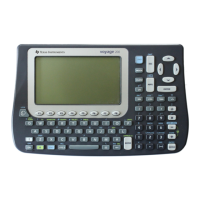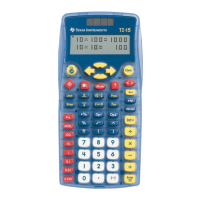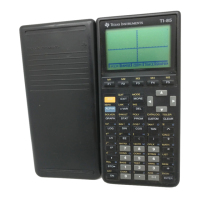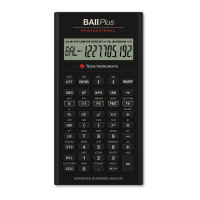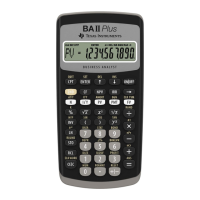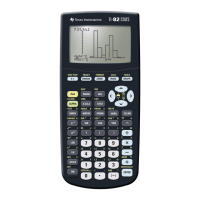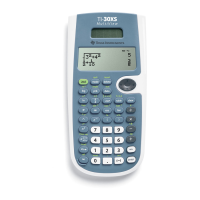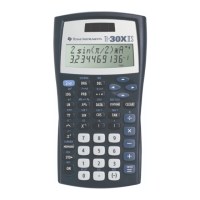Sequence Graphing 372
Using a Sequence to Generate a Table
Using a Sequence to Generate a TableUsing a Sequence to Generate a Table
Using a Sequence to Generate a Table
Previous sections described how to graph a sequence. You can also use a sequence to
generate a table. Refer to
Tables for detailed information.
Example: Fibonacci Sequence
Example: Fibonacci SequenceExample: Fibonacci Sequence
Example: Fibonacci Sequence
In a Fibonacci sequence, the first two terms are 1 and 1. Each succeeding term is the
sum of the two immediately preceding terms.
1. On the Y= Editor (8#), define the
sequence and set the initial values as
shown.
2. Set table parameters (8&) to:
tblStart = 1
@tbl = 1
Independent = AUTO
You must enter {1,1},
although {1 1} is
shown in the
sequence list.
This item is dimmed
if you are not using
TIME axes.
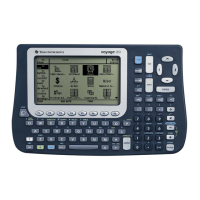
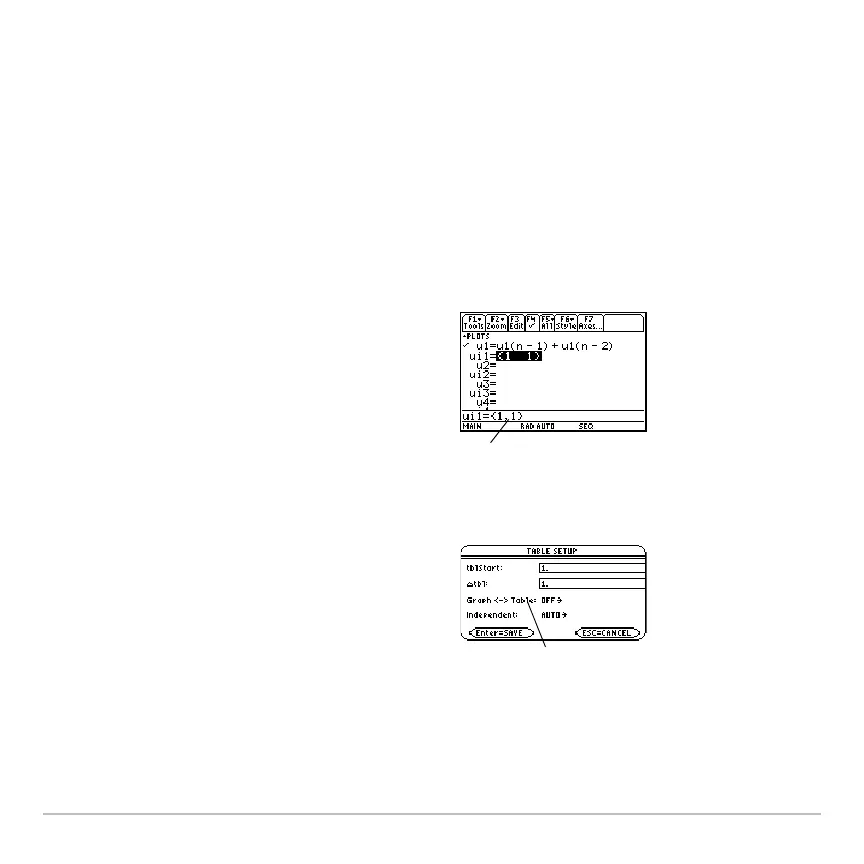